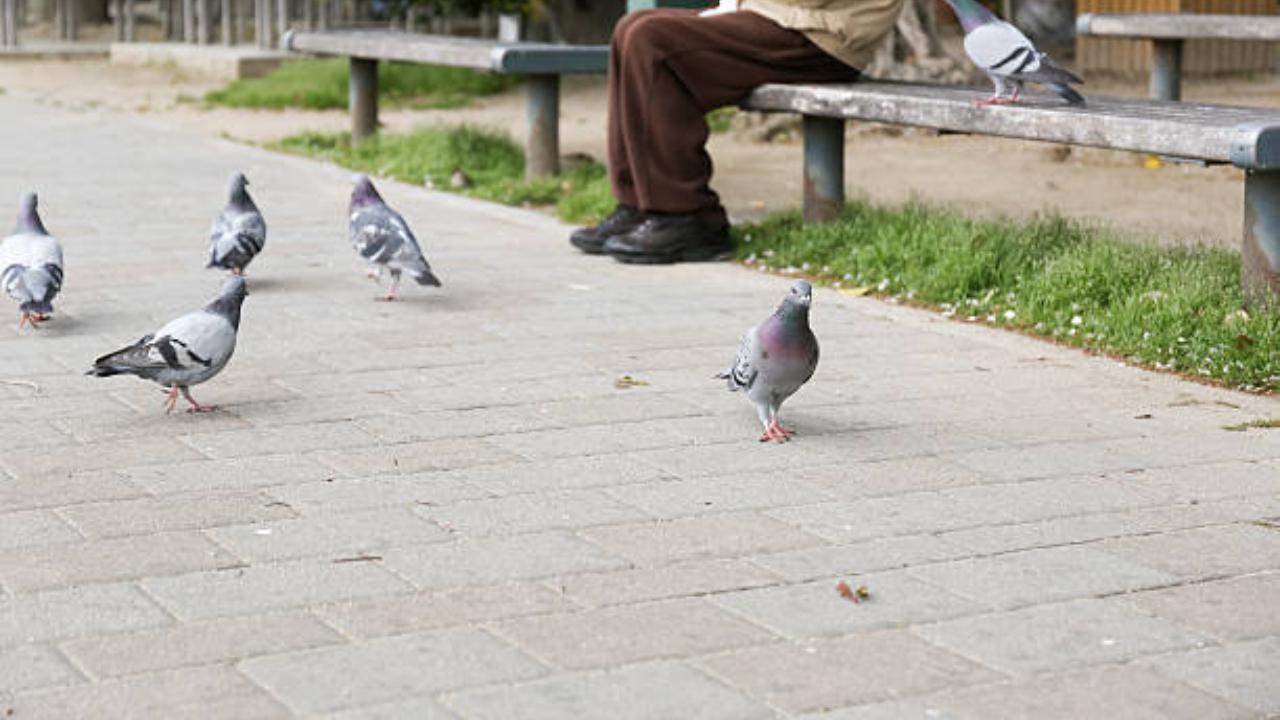People feeding pigeons is a common sight in cities. However, this activity may be harming your lung health, causing respiratory issues. Doctor explains how

Image for representational purposes only (Photo Courtesy: iStock)
People heading to parks and other public places to feed pigeons has become a common sight in cities. However, the unintended consequences of this well-meaning activity on lung health are often overlooked.
ADVERTISEMENT
A recent case study by doctors at Sir Ganga Ram Hospital, Delhi, highlighted the impact of prolonged exposure to pigeon feathers, droppings, etc., on human health. Studies reveal a startling link between urban wildlife, specifically pigeons, and interstitial lung diseases (ILDs). Bird Breeder’s Lung or Hypersensitivity pneumonitis (HP) is one of the most common forms of ILDs that can affect humans feeding pigeons regularly.
In a conversation with mid-day.com, Dr. Lokesh Gutta, Consultant Interventional Pulmonologist, Manipal Hospital, Vijayawada, explains the impact of feeding pigeons on lung health.
“Pigeons can carry various germs that are harmful for respiratory health,” he reveals.
Some of these are:
- Histoplasma capsulatum: A fungus causing histoplasmosis, which can progress to ILD.
- Cryptococcus neoformans: A fungus linked to cryptococcosis, potentially leading to ILD.
- Psittacosis: A bacterial infection causing pneumonia, which can exacerbate existing lung conditions.
He further explains, “When we feed pigeons, we disturb their droppings, releasing spores and bacteria into the air. Inhalation of these pathogens can trigger or worsen ILDs. ILDs encompass a group of disorders characterised by inflammation and scarring in lung tissue.”
Also Read: Thane crime: Man thrashed for feeding pigeons; 4 booked
Symptoms of ILDs
- Shortness of breath
- Dry cough
- Fatigue
- Chest tightness
Are ILDs only caused by contact with pigeons?
“There are many factors that can lead to ILDs,” says Dr. Gutta.
“These include environmental exposures (for example, pigeon droppings), genetic predisposition, autoimmune disorders and occupational hazards,” he informs.
Impact of urban wildlife on lung health
Beyond pigeons, close contact with other animals, insects or rodents can also cause respiratory issues.
Dr. Gutta gives the following examples.
- Rodents: They carry allergens and pathogens, exacerbating respiratory issues.
- Cockroaches: They produce allergens and can trigger asthma attacks.
- Mold: It thrives in urban environments, contributing to respiratory problems.
Minimising impact
Follow these tips to minimise the impact of urban wildlife on lung health.
- Avoid feeding pigeons and other urban wildlife regularly.
- Wear masks when cleaning or disturbing areas with potential pathogen presence.
- Maintain good ventilation and air quality in homes and public spaces.
- Support urban planning initiatives prioritising green spaces and wildlife management.
The link between feeding pigeons and interstitial lung diseases highlights the complex interplay between urban wildlife, environment and human health. Recognising these risks and adopting preventive measures can safeguard our lung health while promoting a more harmonious relationship with urban wildlife.
Also Read: Study finds 200 chemicals linked to breast cancer in food packaging materials
Disclaimer: This information does not replace professional medical advice.
 Subscribe today by clicking the link and stay updated with the latest news!" Click here!
Subscribe today by clicking the link and stay updated with the latest news!" Click here!







